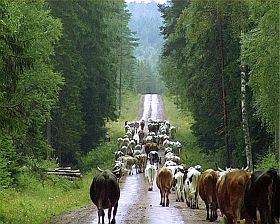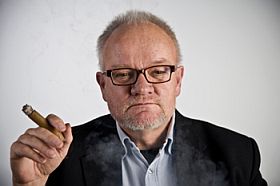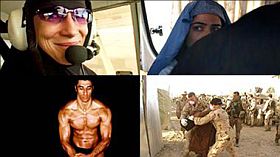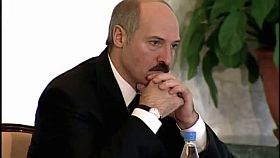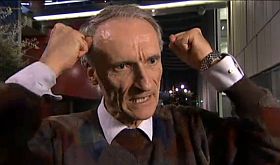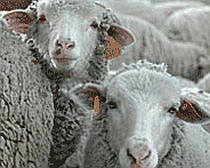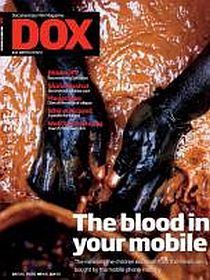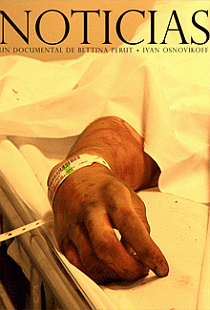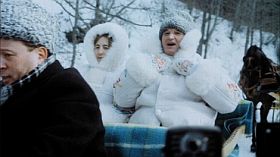It seems to be a never ending story that comes out of Belarus every time an election is being held: The – it seems – life-time president Lukashenko pushes his gorillas to attack his political opponents, who are being beaten up and/or sent to prison. That is what happened a couple of days ago. This is a review that was written for the DOX Magazine some years ago. The film by Khashchevatsky has not lost its actuality.
Let me just mention one scene that demonstrates the mastership of Yuri Khashchevatsky as a filmmaker who knows how to bring forward this very simple message: There is a dictatorship in Europe, a nation called Belarus, governed through a systematically consequent spread of fear among those who are opposed to a regime that suppresses all human rights. A nation where elections are manipulated and where opponents to the President Lukashensko are taken to jail or just disappear.
The scene shows a boy being asked where his father is. I don’t know, the boy says with a photo of his father held to his chest. The camera stays at his face as he starts to cry and seeks refuge behind the back of his mother who is also holding a photo on the square where their manifestation takes place. Cut to the next scene, the same square, the same mother and child, several years later. The mother is attacked by one of the soldiers. Nothing has changed, the father Dimitri Zavadski is still missing.
There are many ways to make a political statement and there have been several films on Lukashenko and Belarus. The world is watching this place of
absurd brutality, where many – should not be forgotten – consider the president as a father like Stalin was the father in the USSR. Most of the films have been journalistic, giving us the necessary information and all the scandals. What Khashchevatsky does is something different. He is being satirical, he uses the film language to give us an almost docu-comedy, we laugh because this is just too much, this can’t be true, but it is like that – and he comments himself declaring indirectly his hope for the new generation to make the situation change.
The title refers to the demonstrations on the Kalinovsky (the name given by the demonstrators after a Belorussian freedom fighter) Square after the election on March 19 2006 where Lukashenko ”created” his victory with up to almost 90% of the votes! You see the battle between the demonstrators and the hard beating gorilllas sent by the government. You see and hear a young girl report what she saw and experienced on the square where a tent city was build in the freezing cold weather. There are sequences from the parliament where Lukashenko observes his main opponent, Milinkevich, there is a visit to a provincial town where nothing works and desillusion reigns but where Lukashenko still is the candidate they will vote for. Newspapers with different opinions are closed, we see archive with Lukashenko declaring sympathy with Hitler – and denying having done so the next moment in the media that he controls totally. We see young people being arrested, and their parents stand in front of the prison protesting.
A decade ago the director was beaten up for making ”An Ordinary President”, it takes courage to come back with another strong and important film, an eye-opener in a powerful but also passionate and patriotic tone. The film will of course have no official screenings in Belarus, the more important it is that it goes to festivals and is being broadcast in all decent tv stations.
2007, Estonia, 58/72 mins.
http://www.bbc.co.uk/news/world-europe-12092708
http://www.deckert-distribution.com/all_films.htm



